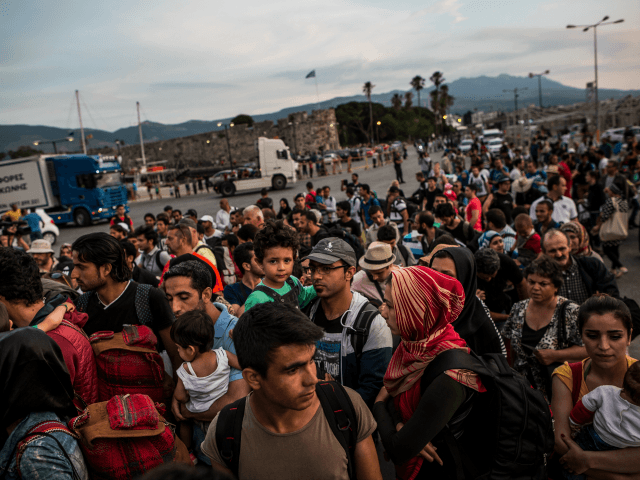Greece has been forced to suspend blood donations after a spike in cases of malaria, believed to have been brought over by the large influx of migrants who have entered the country.
So far, 12 municipalities have out of 325 have banned blood donations, with authorities fearing the infectious disease could spread to both locals and tourists during the height of the summer.
Athanassios Tsakris, professor of microbiology at the University of Athens, told reporters: “Drastic measures have to be taken to avert this strain from taking hold within the domestic population. The screening of migrants must also intensify.”
The Times reports that at least 65 cases of the disease have been recorded so far this year in Greece, compared to 85 cases in whole of last year. Malaria had been eradicated in Greece in the 1970s, but new cases have emerged in the past four years as large numbers of migrants arrive in the country.
So far, 61 of the cases reported this year were people who had brought malaria into the country, while four contracted the disease within Greece.
The disease is generally found in Africa and the Indian subcontinent.
A row broke out when the Greek health ministry claimed the outbreak was under control, with the Athens Medical Association hitting back, accusing the ministry of gross incompetence for cutting anti-mosquito spraying due to budget constraints.
MPs from the conservative opposition have now called for the health ministry’s general secretary to resign for the failure to deal with the threat.
Last week, Breitbart reported how the number of migrants entering Greece has surged since the failed coup in Turkey, with around 100 new arrivals a day.
Although the number is far lower than last year, it suggests the migrant question is far from resolved.
Meanwhile, the number of migrants arriving in Italy is continuing to rise. In June, around 4,500 African migrants reached the country in a single day. Many travel across the Mediterranean in small dinghies from war-torn Libya, with around 10,000 dying while making the crossing since 2014.

COMMENTS
Please let us know if you're having issues with commenting.